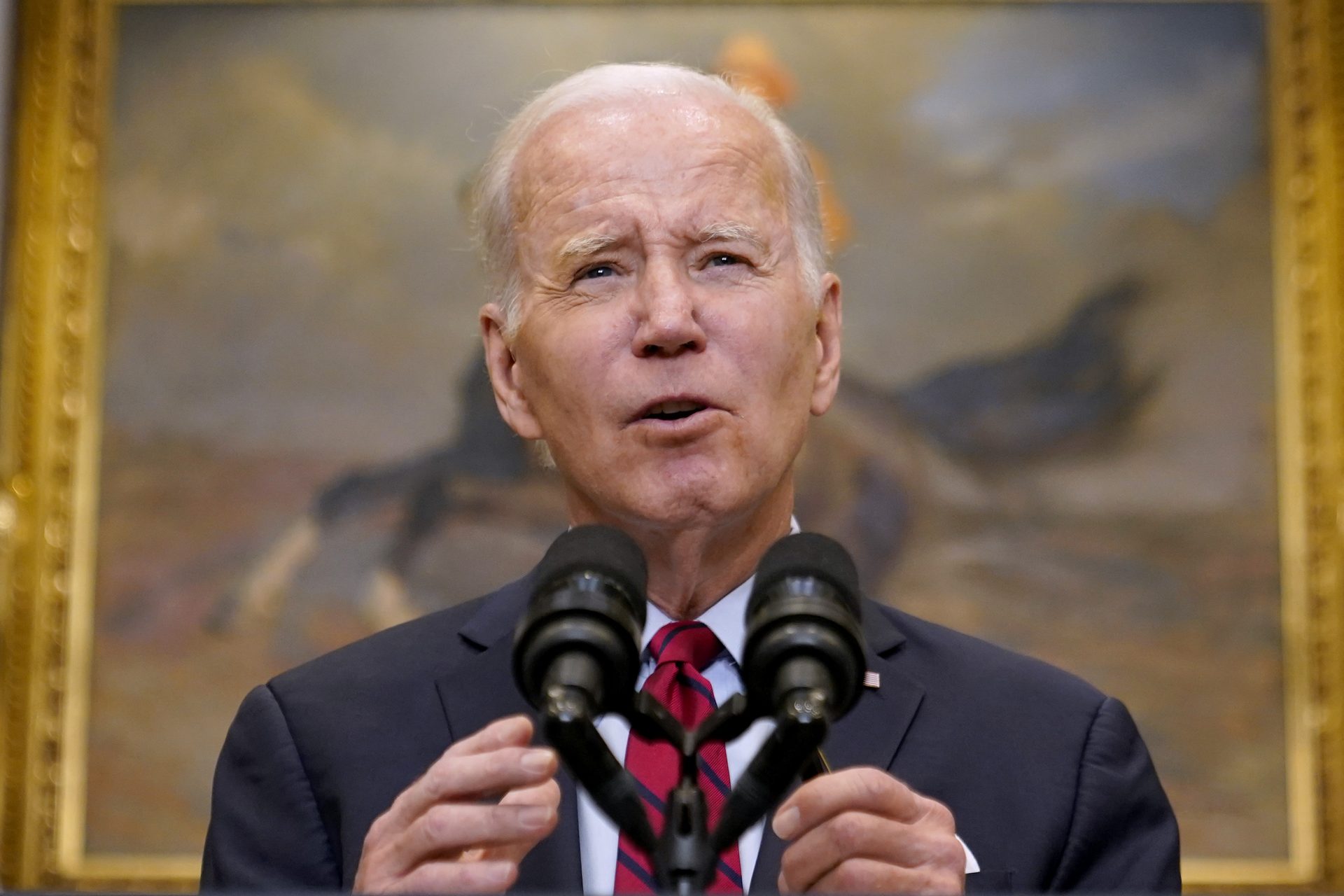BROWNSVILLE, Texas – NextDecade says it is “disappointed” with a ruling from the U.S. Court of Appeals for the D.C. Circuit that effectively cancels previous approval for liquefied natural gas terminals to be built at the Port of Brownsville.
The appeals court issued an order vacating the Federal Energy Regulatory Commission’s (FERC) remand authorization of NextDecade Corporation’s Rio Grande LNG facility on the grounds that the FERC should have issued a supplemental Environmental Impact Statement (EIS) during its remand process.
Two other companies have been similarly negatively impacted by the appeals court ruling: Rio Bravo Pipeline, LLC, part of the Enbridge group, and Texas LNG Brownsville, LLC, part of Glenfarne Energy Transition.
The Rio Bravo Pipeline Project is designed to transport up to 4.5 billion cubic feet per day of natural gas from the Agua Dulce supply area near Corpus Christi to NextDecade’s Rio Grande LNG project in Brownsville, Texas.
“NextDecade is disappointed in the Court’s decision and disagrees with its conclusions. The Company is reviewing the Court’s decision and assessing all of its options,” NextDecade said, in a press release.
“At this time, construction continues on the first three liquefaction trains and related infrastructure (Phase 1) at the Rio Grande LNG Facility, and the Company is evaluating the impact of the Court’s decision on the timing of a positive final investment decision (FID) on Train 4.”
A spokesman for Texas LNG told the Brownsville Herald: “We are studying the opinion, which is a procedural decision to correct a technical deficiency. We have full confidence FERC will address this matter judiciously and efficiently and look forward to working with them on this important issue.”
The spokesman continued: “Texas LNG is an industry-leading export facility designed to be the greenest on the planet once operational. Our project has undergone environmental impact studies previously and received tremendous support from government officials and financial and export partners. Our team is committed to resolving this issue quickly and completely to continue our progress toward (final investment decision) and construction in the near term.”
 File photo: Save RGV From LNG protestors.
File photo: Save RGV From LNG protestors.The lawsuit challenging FERC’s decision to approve the LNG projects was brought by the City of Port Isabel, The Sierra Club, the Carrizo/Comecrudo Tribe of Texas, and Vecinos para el Bienestar de la Comunidad Costera.
Nathan Matthews, senior attorney for the Sierra Club, said it is the first time a court has vacated FERC approval of an LNG terminal.
“The court order will require harmful construction of the Rio Grande LNG facility to stop when the court issues the mandate, which makes the court’s decision effective. Because part of the order vacates FERC’s authorization, the mandate will implement the order and officially revoke NextDecade’s permission to construct. The Court has said itwill not issue the mandate for 52 days, which is seven days after the 45-day deadline for FERC or the developers to seek rehearing.
“But FERC doesn’t need to wait for a court mandate. In 2018, when the Fourth Circuit found that the US Forest Service had improperly approved the Mountain Valley Pipeline, FERC issued a stop work order the following week, without waiting for the court to issue a mandate. FERC should do the same here.”
Dave Cortez, director of the Sierra Club Lone Star Chapter, pointed out that in 2023, FERC reapproved Rio Grande LNG, Texas LNG, and the Rio Bravo pipeline, despite widespread concerns for the harm the projects would cause to the surrounding communities and the climate.
The Sierra Club, the City of Port Isabel, the Carrizo/Comecrudo Tribe of Texas, and Vecinos para el Bienestar de la Comunidad Costera sued FERC for “failing to adequately consider the environmental justice impacts and greenhouse gas emissions of the three projects, as required by the National Environmental Policy Act and the Natural Gas Act.”
Cortez said the the court upheld most of the petitioners’ arguments and vacated FERC’s approvals.
“FERC will now have to reconsider the impacts of all three projects, with a new draft supplemental environmental impact statement and a new public comment period, before deciding whether to issue new project permits,” a press release from the Sierra Club said.
“This is a major victory for working class people of the Rio Grande Valley, the Carrizo Comecrudo Tribal Nation, and the growing alliance they’ve built of everyday Texans and supporters across the country and world,” Cortez said.
“Organizers, tribal leaders, and community members have stood strong in defense of the special lands of the RGV and supported communities navigating the pressures of the climate crisis, deep poverty, militarization, and colonial space exploration. I’m so thankful for them and the attorneys who stood strong in court and persisted despite years of silence and outright support for climate injustice from most major public officials in the valley. Today is a win for the people, the land, and our future.”
Environmentalists and Port Isabel residents have long opposed the two LNG projects and the pipeline due to the impact on Indigenous land, public health, and the surrounding environment.
“Today’s decision is a great victory in our battle to protect public safety and preserve our environment and quality of life. We are very pleased that the D.C. Circuit Court agreed with our position that the development of these LNG facilities would adversely affect our community, and that the impact of these adverse effects had not been adequately considered,” said Jared Hockema, city manager for the City of Port Isabel.
“In fact, the court found that the permits for these facilities were issued despite FERC’s recognition of these impacts. Furthermore, today’s decision vindicates our longstanding position that the cumulative impacts of functionally dependent facilities must be considered, which removes a polluter’s loophole. This latest setback for corporate polluters is a clear sign that these LNG projects should be abandoned, and the damage that’s already been caused should be cleaned up. We are calling on the LNG developers and the Port of Brownsville to do just that. The fight to preserve our environment continues, and we look forward to supporting each other as we continue these worthwhile efforts.”
Juan Mancias, tribal chairman of the Carrizo/Comecrudo Tribe of Texas, said that if built, Rio Grande LNG, Texas LNG, and the Rio Bravo pipeline would destroy endangered species habitats and numerous acres of wetlands that are sacred to the Carrizo/Comecrudo tribe, and would release hazardous chemicals into the air that have been linked to asthma, cancer, and other health conditions.
“This is a victory for our ancestors and for the land. I feel proud to be Esto’k Gna; proud to be Carrizo Comecrudo. I feel proud to continue to fight for and protect our sacred homelands, our ancestors, and our histories. We continue to resist colonization, genocide, and erasure. In this case, we continue to resist ongoing colonization by the fossil fuel industry and against the Rio Grande LNG and Texas LNG projects,” Mancias said.
“Fossil fuel companies habitually lie to regulators in order to get permits to make their money and to destroy the earth and our future generations as well. FERC and other regulatory agencies must stop listening to oil and gas companies and must instead listen to the original Native people of the land. Federal agencies must also do their own independent due diligence and research on all permits and not be dependent on false archeological and false solutions reports from gluttonous fossil fuel corporations.”
Bekah Hinojosa, with the South Texas Environmental Justice Network in Brownsville, said the LNG projects would pose explosion and leak risks that harm people and wildlife and would emit millions of tons per year of climate-warming greenhouse gases, thus contributing to climate change while communities in South Texas feel the real consequences of extreme heat and storms.
“Our low-income Latine and Indigenous community has been working hard for the last 10 years to stop the LNG projects because they are environmental racism,” Hinojosa said. “We’ve organized protests, legal actions, and more to oppose Rio Grande LNG and Texas LNG, which would pollute the ship channel waters, the wildlife refuge, and low-income neighborhoods. Thanks to many years of organizing, we’ve achieved significant victories: The court has decided to halt the LNG projects, and the insurance company Chubb has dropped Rio Grande LNG.”
Matthews, the Sierra Club’s senior attorney, said the decision by the appeals court follows two other decisions in July call into question the adequacy of FERC reviews. He pointed out that just last week, the D.C. Circuit Court ruled that FERC failed to consider increased greenhouse gas emissions and the market need for a Regional Energy Access Expansion (REAE) fracked gas pipeline project in the Northeast.
And earlier in July, he said, the same court ruled that FERC failed to adequately assess Commonwealth LNG’s air pollution impacts and greenhouse gas emissions.
“As fossil fuel corporations continue to propose expansions of facilities that put air and water at risk of pollution only to line their pockets, it is unacceptable for FERC to conduct insufficient environmental justice analysis and to decline to make determinations on the significance of climate-warming emissions,” the Sierra Club said, in a press release.
The post NextDecade ‘disappointed’ with Appeals Court’s LNG ruling appeared first on Rio Grande Guardian.
 (2).png)
 1 month ago
44
1 month ago
44









 English (US)
English (US)